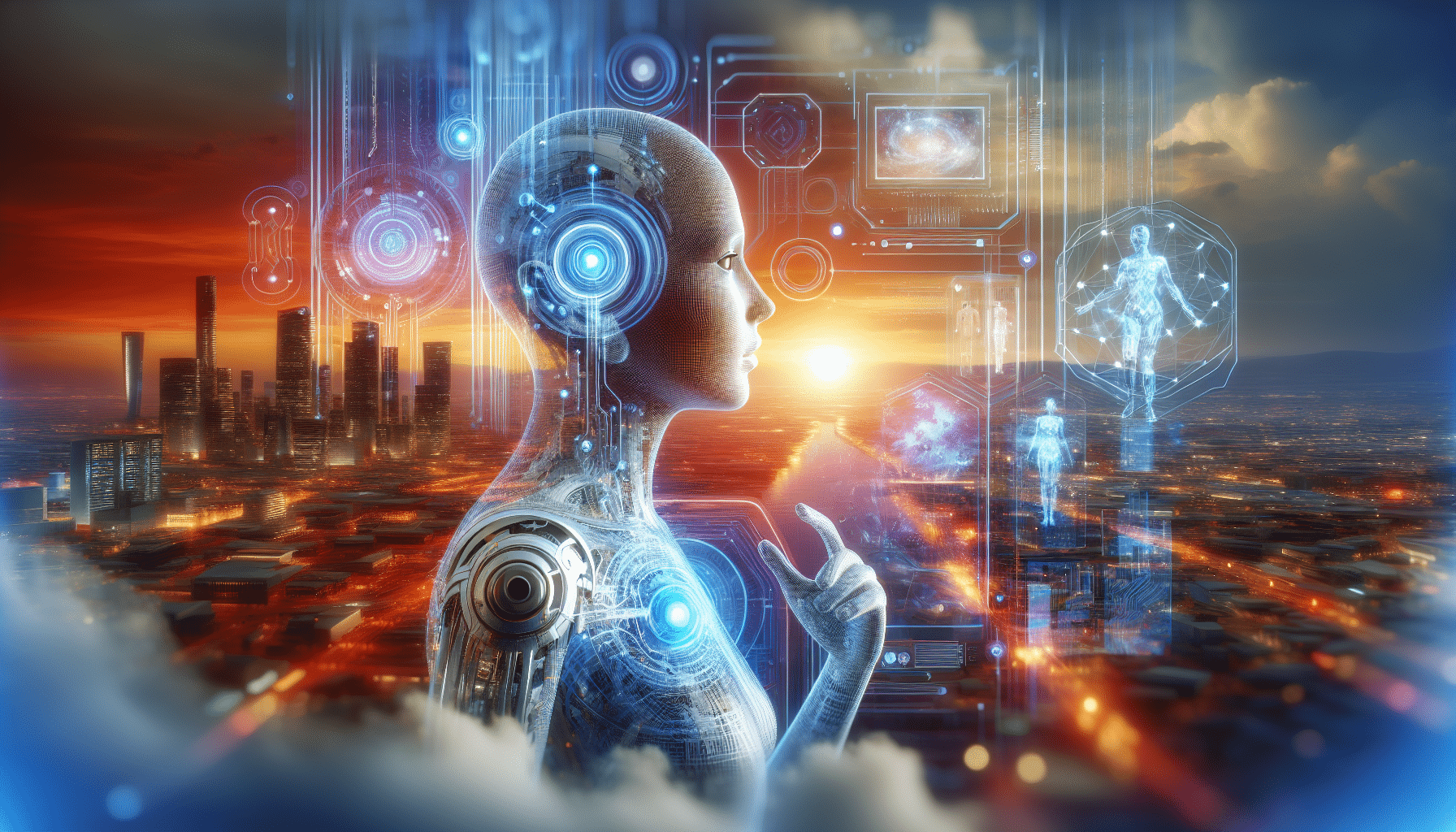Ads
Advances in Artificial Intelligence: Transforming Our Society
The Technological Revolution is here to stay, and Artificial Intelligence is one of the main drivers of this unstoppable advancement. In this article, we delve into the latest advances in the field of Artificial Intelligence and analyze how it is currently influencing our society. From applications in medicine to the automation of industrial processes, AI is transforming the way we live and work.
Advances in Artificial Intelligence are enabling companies to optimize their processes, improve customer service, and develop innovative products and services. However, they also pose new ethical and social challenges, such as data privacy, inequality in access to technology, and the impact on employment. It is essential to reflect on how we can harness the benefits of AI responsibly and equitably.
Ads
In this context of rapid technological evolution, it is important to stay abreast of the latest trends and developments in Artificial Intelligence. In this article, we will explore specific use cases, ongoing research, and future prospects to better understand how AI is transforming our society and what we can expect in the near future. Get ready to dive into the fascinating world of Artificial Intelligence and discover its impact on our daily lives.
Join us on this tour of the latest advances in Artificial Intelligence and discover how this technology is shaping the world around us! From medicine to education, AI is revolutionizing key sectors and posing new opportunities and challenges for our society. Don't miss this fascinating exploration of AI and its influence on our everyday lives!
Ads
Current Applications of Artificial Intelligence
Artificial intelligence has become a fundamental tool in diverse sectors, from medicine to e-commerce. In the healthcare sector, AI algorithms are used to diagnose diseases, predict epidemic outbreaks, and personalize medical treatments. In the financial sector, AI is used to detect fraud and perform predictive market analysis.
Furthermore, artificial intelligence has positioned itself as an indispensable ally in decision-making, offering solutions that enable more efficient management of resources and processes in multiple areas. In the healthcare field, for example, the ability of AI systems to analyze large volumes of data and find recurring patterns translates into faster and more accurate diagnoses, benefiting both doctors and patients. Similarly, in the financial sector, the early detection of fraudulent activities and the creation of predictions based on historical data make it possible to minimize risks and optimize investments, impacting the stability and growth of institutions.
This technology, which is integrated into numerous processes, not only improves the accuracy of medical diagnoses and the detection of financial fraud, but also opens up new opportunities for innovation in traditional sectors. AI, in essence, transforms and revolutionizes the way complex problems are addressed, establishing itself as an indispensable tool for progress and efficiency in our society. Each advance in artificial intelligence reaffirms its strategic role and its ability to generate tangible and sustainable benefits in various fields.
Ethical and Social Challenges
As artificial intelligence continues to advance, it is imperative to proactively address the ethical and social concerns its use raises. Furthermore, special attention must be paid to data privacy, implementing robust security measures and encryption protocols to protect personal information. Mass data collection also requires a clear commitment to prevent violations of individual privacy. Furthermore, algorithmic biases, inherent in some systems, can perpetuate discrimination and inequality. This requires not only the creation of fairer and more transparent algorithms, but also collaboration between governments, institutions, and experts to establish regulations that ensure the responsible and ethical use of artificial intelligence for the benefit of society as a whole.
The Future of Artificial Intelligence
Despite the challenges, the future of AI is promising. AI is expected to continue advancing and become integrated into more aspects of our daily lives. From autonomous vehicles to virtual assistants, AI will continue to transform our society and provide new opportunities and challenges to address.
From medicine to the entertainment industry, Artificial Intelligence is revolutionizing the way we interact with technology and how innovations develop. As we continue to explore the possibilities of AI, it is crucial to address ethical and social challenges to ensure its use is responsible and beneficial for all.

Conclusion
In conclusion, the Technological Revolution has marked a turning point in our society, thanks to advances in Artificial Intelligence. These advances have enabled the implementation of AI in various sectors, such as medicine and e-commerce, transforming the way we interact with technology in our daily lives.
However, as AI becomes more sophisticated, ethical and social challenges arise that must be addressed. Data privacy and algorithmic bias are important concerns that must be considered to ensure responsible use of AI.
Despite these challenges, the future of Artificial Intelligence is promising. AI is expected to continue advancing and become integrated into more aspects of our daily lives, providing new opportunities and challenges to address.
In short, AI is revolutionizing the way we interact with technology and how innovations are developed in various fields. Addressing ethical and social challenges is essential to ensure that AI is used responsibly and beneficially for all, thus ensuring a more inclusive and equitable future for our society. Furthermore, it is crucial to foster ongoing dialogue between experts, governments, and citizens, allowing for the constant review and updating of related regulations and protocols, consolidating a robust ethical framework adaptable to new technological realities.
